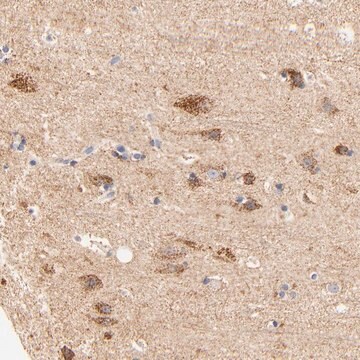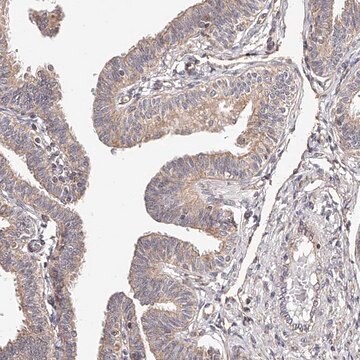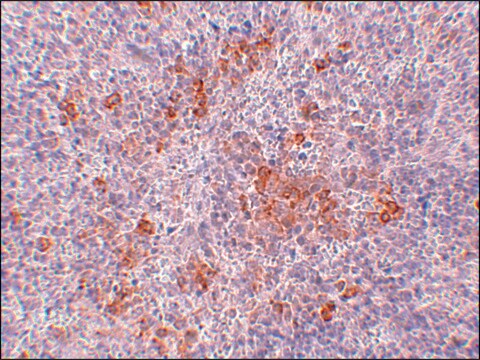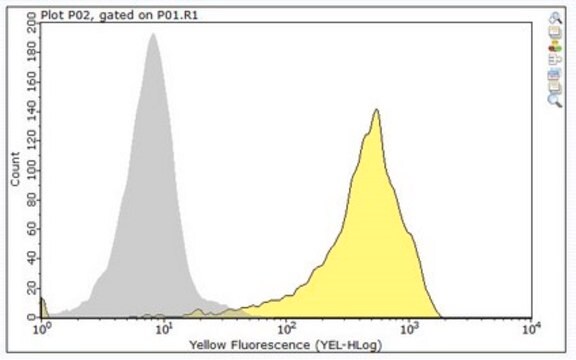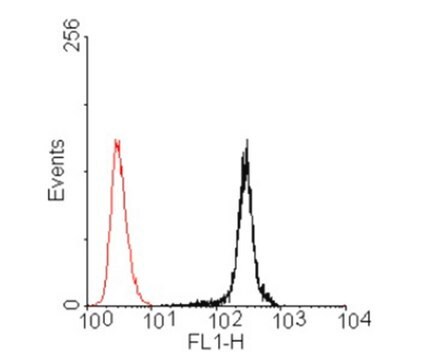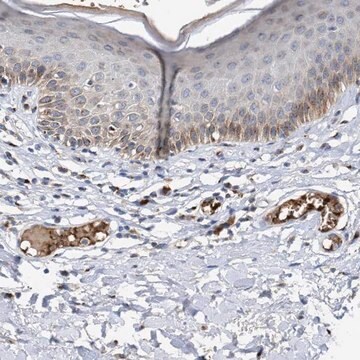MABS1819M
Anti-OTUD3 Antibody, clone 12A6.1
clone 12A6.1, from mouse
Synonim(y):
OTU domain-containing protein 3, EC 3.4.19.12
About This Item
Polecane produkty
pochodzenie biologiczne
mouse
Poziom jakości
forma przeciwciała
purified antibody
rodzaj przeciwciała
primary antibodies
klon
12A6.1, monoclonal
reaktywność gatunkowa
human
opakowanie
antibody small pack of 25 μg
metody
western blot: suitable
izotyp
IgG1κ
numer dostępu NCBI
numer dostępu UniProt
docelowa modyfikacja potranslacyjna
unmodified
informacje o genach
human ... OTUD3(23252)
Powiązane kategorie
Opis ogólny
Specyficzność
Immunogen
Zastosowanie
Signaling
Jakość
Western Blotting Analysis: 2 µg/mL of this antibody detected OTUD3 in 10 µg of human cerebral cortex tissue lysate.
Opis wartości docelowych
Postać fizyczna
Przechowywanie i stabilność
Inne uwagi
Oświadczenie o zrzeczeniu się odpowiedzialności
Nie możesz znaleźć właściwego produktu?
Wypróbuj nasz Narzędzie selektora produktów.
Kod klasy składowania
12 - Non Combustible Liquids
Klasa zagrożenia wodnego (WGK)
WGK 1
Certyfikaty analizy (CoA)
Poszukaj Certyfikaty analizy (CoA), wpisując numer partii/serii produktów. Numery serii i partii można znaleźć na etykiecie produktu po słowach „seria” lub „partia”.
Masz już ten produkt?
Dokumenty związane z niedawno zakupionymi produktami zostały zamieszczone w Bibliotece dokumentów.
Nasz zespół naukowców ma doświadczenie we wszystkich obszarach badań, w tym w naukach przyrodniczych, materiałoznawstwie, syntezie chemicznej, chromatografii, analityce i wielu innych dziedzinach.
Skontaktuj się z zespołem ds. pomocy technicznej